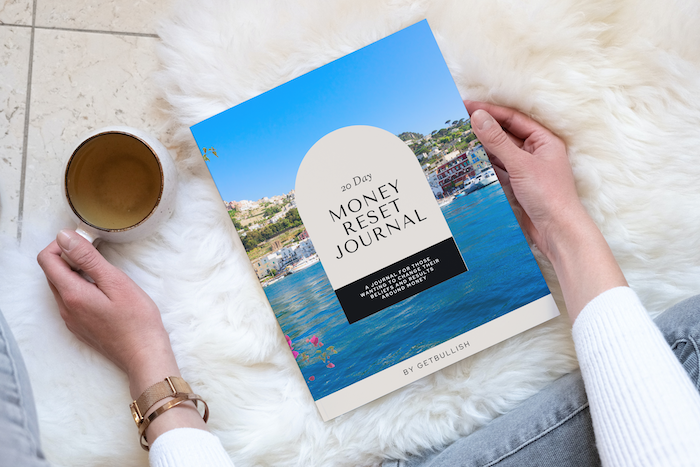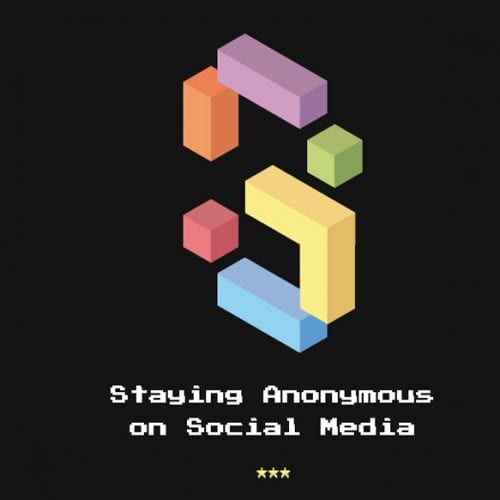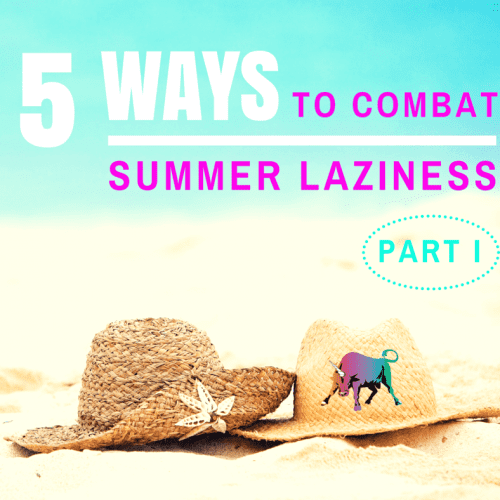There are a lot of things that were pretty hard to do before the Internet. For instance, meet a lot of people who have the same obscure disease or sexual fetish as you. Or get detailed directions from a particular address in Dover to a particular address in Minneapolis. Or find and purchase a song you heard on the radio (but you don’t know who it’s by, and all you remember is that it contains the words “try to find you” and “all the flowers”).
But there were a lot of things that were actually pretty easy to do before the Internet. Like get six hours during which no one interrupts you. Or sit by the water and think about stuff without being tempted to check your phone.
Don’t get me wrong – I’m 32, not 80. But I’ve also always been precocious. Actually, that sounds too flattering. I’ve always had an inner old person (see Bullish: How to Age with Panache and Strategic Awesomeness).
As such, I spent my youth doing things much older people did. For instance, spending all of my allowance on stamps (stamps!) and sending away for brochures (seriously, this was a thing). Sometimes I would send away for brochures on things no one would ever want a brochure on (Hormel chicken bouillon, for instance), just because receiving those brochures in the mail 2-6 weeks later, once I’d forgotten about it, was hilarious. I sent for a catalog from the Spam company, and several weeks later ordered a Spam t-shirt from that company, thus obtaining clothing without my parents’ express permission, which was thrilling at the time (I’m not sure why both of my examples so far have been meat-based).
I also learned to type on a typewriter (including using carbon paper!), which was more a function of not living in a high-income family (people totally typed their papers on computers in 1995, even if they didn’t have Internet access). So, I have the pre-Internet memory of a forty year old, at least. I did send away for some zines, but I’m not going to pretend I was cooler than I was. I wasn’t allowed to go to Hole concerts.
So, I’m not suggesting a time warp. But I do think there are a couple of things we’ve lost (literally, just two) since the early 1990s.
The Miraculous Productivity Benefits of Paper
Did you know that if you receive an email on your iPhone that says, “Let’s do it like they do on the Discovery Channel tonight,” the iPhone will helpfully underline “tonight” so that you can add the event to your calendar in one easy click? “9pm – Do it like they do on the Discovery Channel.” How could you ever turn your back on scheduling technology?
I was once trying to plan a tour with another comedian who became quite frustrated that I was saying idiotic things. She would say, “So, we’ll have two days downtime in between Savannah and Atlanta,” and I would say, “We’re going from Savannah to Jacksonville to Atlanta by way of – wait, what is the order of all the things again? Sorry. Can I just go where you go?”
It turns out, it’s really important to be able to see your entire month at once, which you can’t do on any phone-based calendar system (without losing most of the words on the calendar or having the ability to perceive text at 24,000 dpi). Of course, this is not a problem on a laptop, iPad, or many other devices, although I feel that the main problem with so many productivity applications (and my stupid Kindle) is the most obvious one, the one so obvious no one really notices or talks about it: on a computer screen, you can only see one screen full of stuff at a time. Your brain can really handle more of a visual field than that — close to 180 degrees, in fact — but one thing your brain does not like is the one-second switch between apps (“task switching” is disorienting – the one second on your computer causes a greater-than-one-second lag time in your brain).
It’s pretty undeniable that the brain uses physical space to encode and organize information (when you’re trying to find a quote you read in a book, don’t you always remember whether it was at the top or bottom of the left-facing or right-facing page?) When we wrote papers in college, surely we’ve all had the experience of spreading out books everywhere so we can cross-reference among all of them at once. Your brain can handle a kitchen-table full of information. But keeping all your input in a screen-sized space makes you dumber by taking away something your brain is good at (keeping track of stationary input from a large visual field, and locating information in space) and replacing it with something your brain is bad at (task switching).
When teaching GRE class, students often ask about vocabulary flashcard apps. They’re out there, yes. But, obviously, with smartphone flash cards, you can only see one (maybe two) at a time. What you can’t do is spread out 80 of them on your bedspread and then pick out all of the adjectives, or all of the words that describe sin and evil, for instance.
So, I’m secure enough with my inner-42-year-old to pull out my severely old-school calendar (it’s written on in two colors of pen). And seriously, if I have to put a recurring event into my calendar in pen, I really think about the time I’m committing. There’s no “auto-click and schedule”; it’s a conscious decision.
And think about the notes you used to take in high school or college, and the many ways that they were often superior to notes taken on a laptop: when handwriting, we naturally make more important things bigger or darker, and we physically connect information with arrows or put boxes around important points – all things that are possible in many apps, and yet are also things at which your actual hands are really kind of better and more automatic.
We all like cool devices (I’ve been shaving my legs digitally for months now), but don’t be afraid to go retro for your own personal productivity. For more on low-fi creativity and productivity, try Dan Roam’s The Back of the Napkin.
The Miraculous Productivity Benefits of Zero Technology
Did you know that light from computer screens can inhibit melatonin production, thus compromising the quality of your sleep? Gross.
I have some vague pre-teen memories of the way adult life seemed to work before the Internet. Without Facebook, people who didn’t live together just literally didn’t say as many things to each other. When you met up with a faraway relative, you actually had stuff to catch up on – you might even bring photos! From the photo department at someplace like Target! And then your relative would ask for doubles of the cute ones, and this sort of obnoxious weeks-long errand (find the negatives, go back to Target, fill out very specific form, pick up from Target, mail) made lots of thankless busy work for stay-at-home parents.
Okay, so screw that. But I’m also pretty sure that I would be substantially dumber today if I had not grown up with enormous stretches of time during which I had no stimulation (or distraction) whatsoever. My parents weren’t into signing us up for activities. Every summer, I spent almost all of almost every day in a room containing only books, paper, and a home phone. Doesn’t that sound like jail? But it worked: among other pursuits, I grafted an entire personality onto myself from the Merriam-Webster Vocabulary Builder and some old textbooks I bought for fifty cents each from the public library’s book sale.
Way back when, it was also kind of harder to procrastinate. You really had to admit that that was what you were doing, because work and procrastination could not take place on the same device. (You just try to procrastinate on a typewriter!) If you were supposed to sit in a chair and write something but you were actually watching television or baking brownies, you really had to face the fact that you were fucking around. You’re in a completely different part of the house! In contrast, it’s pretty easy to do some Internet “research” that quickly morphs into a sharing baby-penguin-videos-from-Youtube-on-Facebook session.
It’s pretty hard to go off technology, but when we do, we often get a lot done. For instance, on planes. Some people plan for days what they’re going to “get done on the plane,” despite the fact that in those days leading up to the plane trip, there were plenty of stretches of time during which the same tasks could’ve gotten done. Maybe I should start a business wherein I set up some fake plane seats (in an office space somewhere) and make people sit in them with no Internet or phones allowed and bathroom breaks permitted only when the “Fasten Seatbelt” sign is off. And then I’d serve little bags of pretzels to all the aspiring novelists who were paying me for the privilege.
Which reminds me – I have always found (as those of us who travel alone generally do) that I feel so unfettered and creative while traveling! (See Bullish: How to Travel Like a Gentlewoman). But the trick is not that I’m in an exotic land – it’s more that I have nothing to do and my iPhone doesn’t work, so it feels like time lasts forever. Leave hotel, come back, leave hotel, come back., leave hotel, come back – you’ve lived three days in one! You’re one step closer to being immortal!
Somewhere around the end of such a trip, I usually realize: Wait, the things I like are walking around cities and popping into stores and drinking coffee alone in coffeeshops and eating alone in restaurants while thinking about things? I live in New York! I could totally do that at home! But I rarely do, because a lot of boring and trivial things keep happening on my phone!
So, I finally did something about this – Fridays are my only day off, so I adopted a no-technology policy (this column was written on Thursday). The first time, I walked around and went to some store and ate in two different restaurants and organized my jewelry and, er, felt like myself in a way I hadn’t in years. It was the longest and best day of the year so far. My cat felt so loved!
Tim Ferris has long recommended a low-information diet – see How to Stop Checking Email on Evenings and Weekends, for instance. Isn’t it funny that we’d need a how-to article for how not to do something? But we do.
On my first no-media Friday, I didn’t check in to Bullish to see that my column had gone up – someone else was in charge of that. And I didn’t read social media mentions – they’d be there later! I kind of figured that I might miss a phone call if someone died, but seriously – they’d be dead later. (And really, what are the chances?) I am not needed to perform organ transplants. Everything can wait. When I did check email on Saturday, I discovered that two people had been disappointed by not receiving advice or permission from me when they wanted it. The fact that one day going by had closed the window of opportunity made it all the more clear to me that these people both should’ve asked earlier. I said, “Sorry, didn’t see this until now!” and they said, “No problem.” Maybe in the future, they’ll email in advance.
Certainly it’s easier to tell friends and coworkers (and your boss) that you’re unreachable if 1) you’re hiking, 2) you’re on a service project in a nation that lacks the Internet, or 3) you’re writing a book (or recording an album, etc.) You can make up a lot of these things. A relative told me a story about the most popular vacation destinations for government employees. Since certain types of employees are required to keep their cell phones on, even on vacation, anywhere where there’s cell phone access, certain stretches of the Appalachian Trail and certain remote beaches are very attractive to our nation’s civil servants.
But I think it’s easier to just let people get used to your technology-disappearances. It’s like playing hard to get. Maybe they’ll think you’re having sex all day (I hope you don’t check your phone while you’re doing that).
In addition to an occasional no-media fast, some other suggestions for unplugging include having separate devices for work and play (work-only on the laptop, play-only on the iPad), or only allowing yourself to use Facebook and other time-wasters when you physically take your laptop into a certain room (work-only at the desk, play-only at the kitchen table). Kinesthetic cues are a serious thing!
I write all the time about how social skills are important in your career, but I also write all the time about becoming an undeniable expert in something, so that no one can take that from you even when you’re old and lack some of the privilege you may now have. Developing expertise is, in large part, solitary. Genius is solitary. Solitude is hard to come by these days.
***
In 1985, Neil Postman (Amusing Ourselves to Death) wrote that George Orwell’s vision in 1984, though frightening, was in little danger of occurring, and that the human animal is much more docile to a massaging finger in the pleasure center of its brain:
What Orwell feared were those who would ban books. What Huxley feared was that there would be no reason to ban a book, for there would be no one who wanted to read one. Orwell feared those who would deprive us of information. Huxley feared those who would give us so much that we would be reduced to passivity and egoism. Orwell feared that the truth would be concealed from us. Huxley feared the truth would be drowned in a sea of irrelevance. Orwell feared we would become a captive culture. Huxley feared we would become a trivial culture, preoccupied with some equivalent of the feelies, the orgy porgy, and the centrifugal bumblepuppy. As Huxley remarked in Brave New World Revisited, the civil libertarians and rationalists who are ever on the alert to oppose tyranny “failed to take into account man’s almost infinite appetite for distractions”. In 1984, Huxley added, people are controlled by inflicting pain. In Brave New World, they are controlled by inflicting pleasure. In short, Orwell feared that what we hate will ruin us. Huxley feared that what we love will ruin us.
This is a career column, though, so I’ll end by saying that an ability to unplug – to take all the incredible amount of stimulus you’ve absorbed and synthesize it into something of value – is a tremendous competitive advantage, and one you can gain for free. Sometimes it’s good to work like it’s 1999 (or 1899!)
originally published on The Gloss











